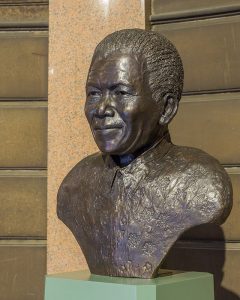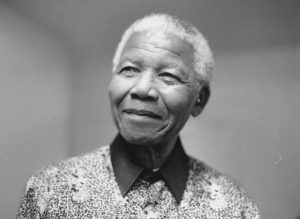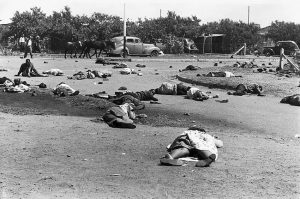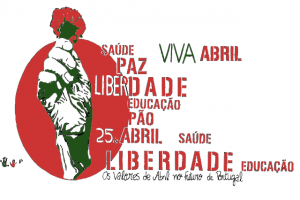
April 2024 is the 30th anniversary of the defeat of apartheid and the first democratic election in South Africa and the 50th anniversary of the overthrow of Portuguese fascism and colonialism and the liberation of Angola, Mozambique and Guiné Bissau – the Carnation revolution.
Here Brian Filling gives the history to the defeat of apartheid and explains that the isolation of the apartheid regime in southern Africa grew from the Carnation Revolution and deepened with the liberation of Zimbabwe and then Namibia.
27 April 1994 is a historic date in history as we celebrate the 30th anniversary of the first democratic election in South Africa and the end of apartheid after some 300 years of colonialism.
25 April 1974 is also a historic date and should be celebrated as on that day Portuguese fascism was overthrown leading to the defeat of Portuguese colonialism in Africa. It was hailed as the ‘Carnation revolution’. Mozambique, Angola and Guiné Bissau gained their formal independence in 1975 after years of their liberation struggle. This was a major blow to the apartheid regime and hastened its end.
Apartheid
British colonialism, following on from Dutch colonialism, ruled South Africa for some 300 years. Colonialism was resisted by the indigenous African people but despite their courage and bravery they were defeated by the Dutch and British colonialists due to their superior arms.
The victory of the Nationalist party in the whites-only election in 1948 led to the introduction and imposition of apartheid.
This took colonial segregation to a new level. Black people were treated as sub-human. Whites had already taken over most of the fertile land and black people were banished to the most infertile land in what were termed Bantustans. They were only allowed into white areas to work. Pass laws enforced this system of gross exploitation.
Beneath the race laws which covered every aspect of life lay a huge economic machine which, far more than white-only bathing beaches, preserved white domination and prosperity.
Apartheid was a system which maximised profits by regulating labour in such a way that it all but reduced it to slavery. Apartheid was supported and profited from by the West particularly Britain.
The United Nations designated Apartheid a ‘crime against humanity’.

Resistance
With the introduction of apartheid there was widespread and mass resistance with, for example, the Defiance campaign of 1952 in which people volunteered to defy unjust laws and thus court imprisonment. Nelson Mandela was appointed “Volunteer-in-Chief”. Many were jailed. The people’s organisations including the African National Congress and the Communist Party were banned.
The struggle of the South African people was relentless. The Congress of the People in 1955 brought together people from all races to adopt the “Freedom Charter”. The apartheid regime saw this as treasonous activity and in December 1956 the regime arrested hundreds and the Treason Trial, which had 156 accused, including Nelson Mandela, ran until 1961.

On 21 March 1960 the South African police shot dead 69 peaceful anti-Pass protesters at Sharpeville. It became known as the Sharpeville Massacre and led to world-wide protests.
The Boycott Movement in Britain transformed itself into the Anti-Apartheid Movement.
It was the Sharpeville Massacre and the vicious state repression that followed which led to the African National Congress taking the decision that peaceful protests were insufficient to bring about change. The armed struggle was launched in 1961 with Nelson Mandela as Commander-in-Chief.
In 1963 key leaders were arrested at Liliesleaf Farm in Rivonia and put on trial for treason. Nelson Mandela had been caught and jailed earlier so he was already in prison. The trial became known as the Rivonia Trial. The Rivonia trialists all received life sentences.
There was a resurgence of the struggle in the 1970s which was encouraged in part by developments in other parts of southern Africa.
 Liberation of Portuguese colonies
Liberation of Portuguese colonies
Portuguese fascism and colonialism which had ruled the country for over 50 years was overthrown on 25 April 1974.This led to the liberation of Angola, Mozambique and Guiné Bissau which had seen lengthy liberation struggles.
South African armed forces, in collusion with the United States, invaded Angola in an attempt to prevent the victory of the Movement for the Liberation of Angola (MPLA). The Angolan government asked the Cuban government for assistance and in a historic battle at Cuito Cuinavale the South African forces were defeated by a combined Angolan and Cuban force.
This was a great blow to the apartheid regime which had presented itself as invincible.
In 1976 the school students of Soweto revolted against being taught in Afrikaans, the language of the oppressor. A whole new generation joined the struggle including many leaving the country to join the armed struggle.
By 1980 Zimbabwe, also after a lengthy armed struggle, won its independence.
With the defeat of Portuguese colonialism and the white settler regime in Rhodesia, Apartheid South Africa was isolated in southern Africa and no longer had friendly neighbours. The Front-Line States became important to the struggle, and with that, they also became targets of the apartheid regime.
The 1980s saw the development of the Mass Democratic Movement inside South Africa. The Congress of South African Trade Unions (COSATU) was born in 1985 as the heir to the South African Congress of Trade Unions (SACTU) and the United Democratic Front was created as an umbrella organisation of all those opposing apartheid.
The international solidarity movement stepped up its activities. The boycott of South Africa grew and many countries imposed sanctions on apartheid South Africa but not Britain.
Namibia gained its independence in 1989 after a lengthy liberation struggle against the apartheid occupation forces.
All of these momentous changes, brought about by the heroic liberation struggles in these countries of southern Africa and the international solidarity movement made the apartheid regime more and more isolated and brought nearer the day of South Africa’s liberation from the nightmare of apartheid.
ANC unbanned, Mandela released
The struggle of the South African people against apartheid reached a peak and the regime was forced to unban the African National Congress and Nelson Mandela was released in 1990 after 27 years in prison.
The next four years saw the apartheid regime try to cling on to power but with the assassination of Chris Hani, General Secretary of the Communist Party and ANC leader, there was a phenomenal outpouring of grief and anger.
The struggle of the South African people could no longer be contained and the apartheid regime was forced into agreeing a date for elections. Negotiations led to a Transnational Executive and the first democratic election in the history of South Africa.
The African National Congress won the first democratic election in South African history on 27 April 1994 when millions of South Africans of all races voted for the first time. ANC won the election overwhelmingly and Nelson Mandela was inaugurated as President of South Africa on 10 May 1994.
